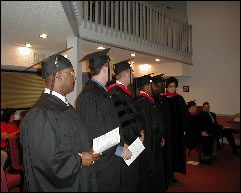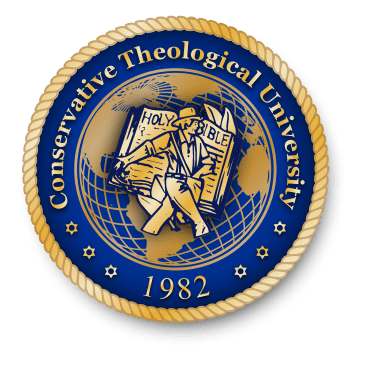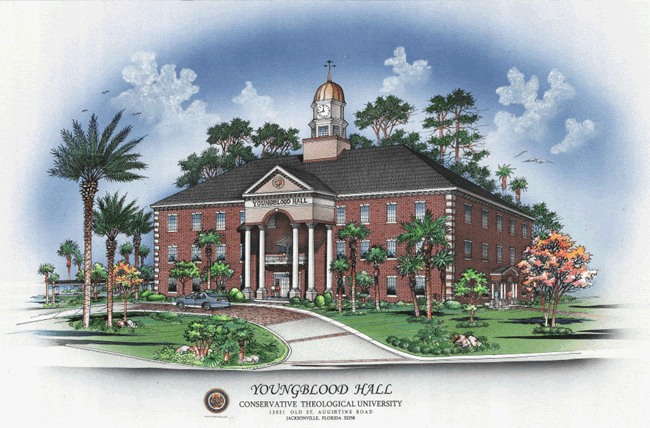PRIOR LEARNING ASSESSMENT
A growing number of institutions of higher learning are implementing programs designed to award credit for experiential learning – that is, learning acquired outside of the classroom. This learning may result from such activities as work experience, work-related in-service training, ministry or self-directed independent study.
If you are among those who are interested in receiving credit for prior experiential learning, a syllabus is designed to assist you in the preparation of a portfolio, a formal written communication which requests credit and supplies supporting information. The syllabus is issued upon acceptance of a completed application, the payment of the required fees, and approval to complete a PLA. Maximum PLE credits not to exceed 25% of credits required for CTU degree.
BENEFITS OF PORTFOLIO PREPARATION
First of all, the preparation of a portfolio will allow you to request credit for a significant number of assessable CTU courses for which a portfolio is the only acceptable evaluation method.
It is important for you to have a realistic understanding of your present levels of competence. With such realistic appraisal of what you know and can do, you can better plan further educational activities.

RATIONALE AND CRITERIA
Many ministers have felt for a long time that some of their non-seminary experiences are equivalent to what is taught in Bible college or seminary, and that they should receive credit for those experiences toward a seminary degree. CTU is willing to recognize and award appropriate credit for what a person knows and can do as a result of non-seminary experience.
Credit will not be awarded simply for your years of experience. Rather, you will be requested to demonstrate what important knowledge, skills, and/or competencies you have attained as a result of the experiences you have had. In order to award such credit, your learning must meet certain criteria. These criteria includes the following:
- The learning should be publicly verifiable. You should be able to demonstrate to an expert in the field that you possess the learning, which you have claimed, and such an expert should be able to objectively measure and evaluate the learning, which has occurred.
- The learning should be equivalent to college/seminary level work in terms of quality. It is required that the prior experiential learning be related directly to courses in this catalog.
- The learning should have a subject matter or knowledge base. The student also should have a subject matter or knowledge base. You should not expect to receive college/seminary credit for mere application of manual skill or a narrowly prescribed routine or procedure. You should understand why you are able to do what you do.
- The learning should have a general applicability outside of the specific situation in which it was acquired.
- You should be able to demonstrate that you know the relationship between what you have learned and other related subject fields.
CONTENTS OF YOUR PORTFOLIO
When complete, your portfolio will contain the following items:
- Title Page
Name, address and phone number of the author, month and year. - Credit request list
A list of the catalog courses for which you wish to receive along with a brief statement of the corresponding competencies. - Narrative descriptions of your learning experiences
- Index to documentation
A table of contents, which allows easy access to any particular document. - Documentation
The evidence that you have actually done what you claim to have done.
REQUESTING CREDIT
It is necessary that the learning be equivalent to courses designated as “assessable courses.” A listing of assessable courses is available through the Office of assessment and evaluation.
If you have already determined which assessable courses are designed to produce competencies equivalent to yours, complete the Credit Request List. If you are not yet able to describe your prior learning experiences in terms of specific competencies and equivalent courses, complete the exercises designed to assist you in accomplishing this.
After completing the credit request list you should begin to develop a separate narrative description of your prior learning experience for each course listed. Each description should describe what you learned. Explain why the learning is equivalent to the course for which you are seeking credit.
Be sure to refer to the documentation which supports your claim and state where it may be found. The presentation of documentation does not relieve you of the requirement of describing your learning.
CREDIT REQUEST LIST
- CTU COURSE CO-201
- NARRATIVE PAGE PAGE 46
- REFERENCES
- PAPER SIZE 8 ½ X 11 paper
NOTE: The PLA syllabus will provide step-by-step instructions for the development of your PLA. Submit your completed portfolio to the director of assessment and evaluation. From there it will go to the appropriate academic department for assessment. Generally there will be a time lapse of 60-90 days for the evaluation and report sent to the student.
HOW THE EXPERIENTIAL LEARNING ASSESSMENT WORKS
The faculty of each department has determined which courses are assessable and how they are to be assessed. The faculty members themselves do the assessment of your portfolio and decide on whether or not to award credit. You are notified of the results through the director of assessment and evaluation office, which also notifies the university records department so that your credit can be recorded on your transcript. Credit will be recorded using the appropriate course prefix and number and will be labeled as assessment credit. No letter grades are assigned to assessed courses. Because of the element of subjectivity, all decisions of the Assessment and Evaluation Committee are final. There are NO automatic credits given just for the production of a PLA.




